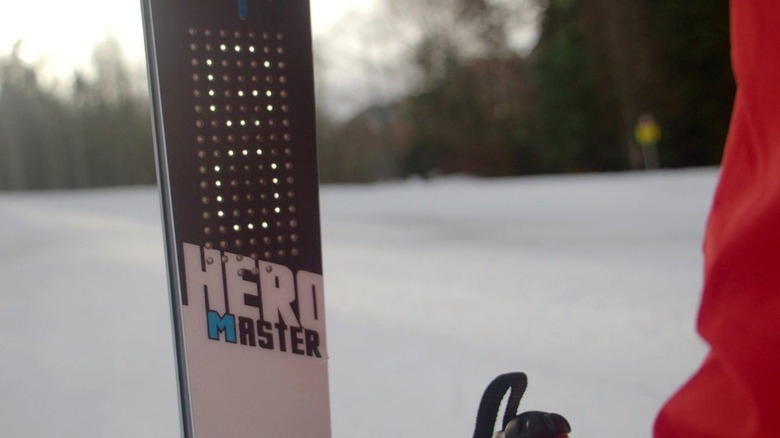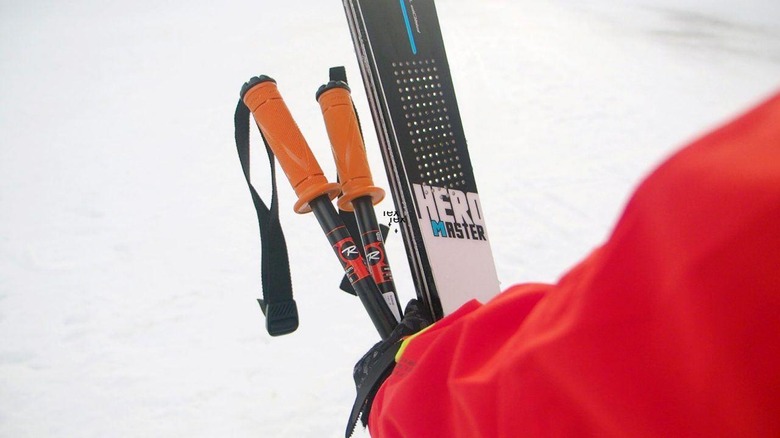These Connected Rossignol Skis Have A Built-In Computer
As "wearable tech" goes, skis are probably pushing the edges of the definition, but that hasn't stopped PIQ from embedding a whole bunch of technology in a new connected ski. The collaboration between PIQ and slope favorite Rossignol sees the former's PIQ ROBOT nano-computer integrated into the latter's Hero Master skis, offering real-time analysis of how you're doing on the snow. Currently a prototype, it's being shown off for the first time in Munich this week.
Dubbed the Rossignol Hero Master prototype, the skis are based on the sports kit company's popular racing model. Into that, PIQ integrates its PIQ ROBOT, which has a variety of motion sensors. Metrics tracked include speed, turn angle, how "explosive" the skier's transitions from one edge to the other are, and G-force in each turn.

That data can be fed back to the user in real-time, courtesy of a big LED screen built into the ski itself. PIQ also has a mobile app, of course, for sifting through the metrics later on.
PIQ calls its system GAIA, an artificial intelligence focused on high-speed sports metrics. The Rossignol ski prototype isn't the first time its been used, either: the company already has a $198 ski version, again in partnership with Rossignol,. which mounts on the rider's boot. However, because of that positioning, there's no real-time review of the data.

We've seen technology head out to the slopes before, of course. Back in 2011, Signal Snowboard cooked up a one-off snowboard with a built-in iPad, for instance. Intended as a tribute to Steve Jobs, the board meant you could carry out a FaceTime conversation while you were out on the slopes, even if that wasn't something especially safe.
Arguably a whole lot more useful, Recon Instruments – since bought out by Intel – has offered a variety of ski and snowboarding goggles, that integrate head-up displays. Their JET goggles, for instance, offered metrics like speed and navigation directions in the eye-line of the wearer. ANT+ compatibility meant that a wireless sensor mounted on the ski or snowboard could feed back select data such as G-force, depending on the model used.
PIQ and Rossignol haven't said when the connected skis might reach the market, nor indeed how much they could cost. A set of regular, non-connected Hero Master skis have a list price of around $1,000, so we'd guess the connected version would carry a reasonable premium on top of that for their flexibility and convenience.
